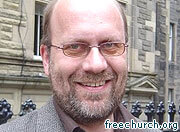Churches will continue to have a voice on local authority education committees, after the Scottish Government rejected a secularist bid to end the practice.
The move was welcomed as evidence that Government ministers recognise the valuable role churches have to play.
The Edinburgh Secular Society (ESS) had wanted changes to rules which require education committees to appoint representatives from religious organisations.
Service
Under the 1973 Local Government Act three religious figures should be included – one from the Church of Scotland, one from the Roman Catholic Church and a third from any other religious organisation.
The secularists’ idea had faced criticism from churches who say they offer a helpful service to schools.
In a letter the Government said: “Ministers support the involvement of religious representatives in the decision-making process by councils in relation to education and do not have any plans to change the existing provisions within the 1973 Act.”
Children
The result was welcomed by David Robertson, a Free Church minister and Director of the Solas Centre for Public Christianity.
Revd Robertson said: “We are delighted that the Scottish Government has refused to bow to the secularist agenda and continues to uphold the historic agreement between the churches and the state in Scottish schools.
“They clearly recognise the valuable part that the churches have to play.
“We hope to continue to have a major input into Scotland’s education system – for the sake of Scotland’s children.”
Support
In January, the ESS gave evidence to the Scottish Parliament’s Public Petitions Committee, having gathered 1,778 signatures in opposition to the current legislation.
Green MSP Patrick Harvie had supported the campaign, saying it was “high time” the current set up was questioned.
But the Roman Catholic Church said its representatives offer “an invaluable service to their local communities” through their work.
And a Church of Scotland spokesman said its role is “one of service and support that reflects its contribution to education since its vision of a school in every parish helped in establishing Scotland’s universal education system”.

